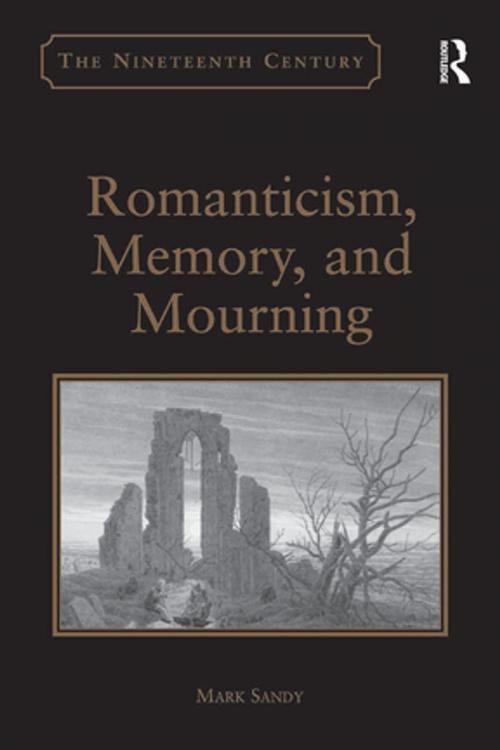| Author: | Mark Sandy | ISBN: | 9781317061328 |
| Publisher: | Taylor and Francis | Publication: | April 8, 2016 |
| Imprint: | Routledge | Language: | English |
| Author: | Mark Sandy |
| ISBN: | 9781317061328 |
| Publisher: | Taylor and Francis |
| Publication: | April 8, 2016 |
| Imprint: | Routledge |
| Language: | English |
The subject of Romanticism, Memory, and Mourning could not be timelier with Zizek’s recent proclamation that we are ’living in the end times’ and in an era which is preoccupied with the process and consequences of ageing. We mourn both for our pasts and futures as we now recognise that history is a continuation and record of loss. Mark Sandy explores the treatment of grief, loss, and death across a variety of Romantic poetic forms, including the ballad, sonnet, epic, elegy, fragment, romance, and ode in the works of poets as diverse as Smith, Hemans, Blake, Wordsworth, Coleridge, Byron, Shelley, Keats, and Clare. Romantic meditations on grief, however varied in form and content, are self-consciously aware of the complexity and strength of feelings surrounding the consolation or disconsolation that their structures of poetic memory afford those who survive the imaginary and actual dead. Romantic mourning, Sandy shows, finds expression in disparate poetic forms, and how it manifests itself both as the spirit of its age, rooted in precise historical conditions, and as a proleptic power, of lasting transhistorical significance. Romantic meditations on grief and loss speak to our contemporary anxieties about the inevitable, but unthinkable, event of death itself.
The subject of Romanticism, Memory, and Mourning could not be timelier with Zizek’s recent proclamation that we are ’living in the end times’ and in an era which is preoccupied with the process and consequences of ageing. We mourn both for our pasts and futures as we now recognise that history is a continuation and record of loss. Mark Sandy explores the treatment of grief, loss, and death across a variety of Romantic poetic forms, including the ballad, sonnet, epic, elegy, fragment, romance, and ode in the works of poets as diverse as Smith, Hemans, Blake, Wordsworth, Coleridge, Byron, Shelley, Keats, and Clare. Romantic meditations on grief, however varied in form and content, are self-consciously aware of the complexity and strength of feelings surrounding the consolation or disconsolation that their structures of poetic memory afford those who survive the imaginary and actual dead. Romantic mourning, Sandy shows, finds expression in disparate poetic forms, and how it manifests itself both as the spirit of its age, rooted in precise historical conditions, and as a proleptic power, of lasting transhistorical significance. Romantic meditations on grief and loss speak to our contemporary anxieties about the inevitable, but unthinkable, event of death itself.















